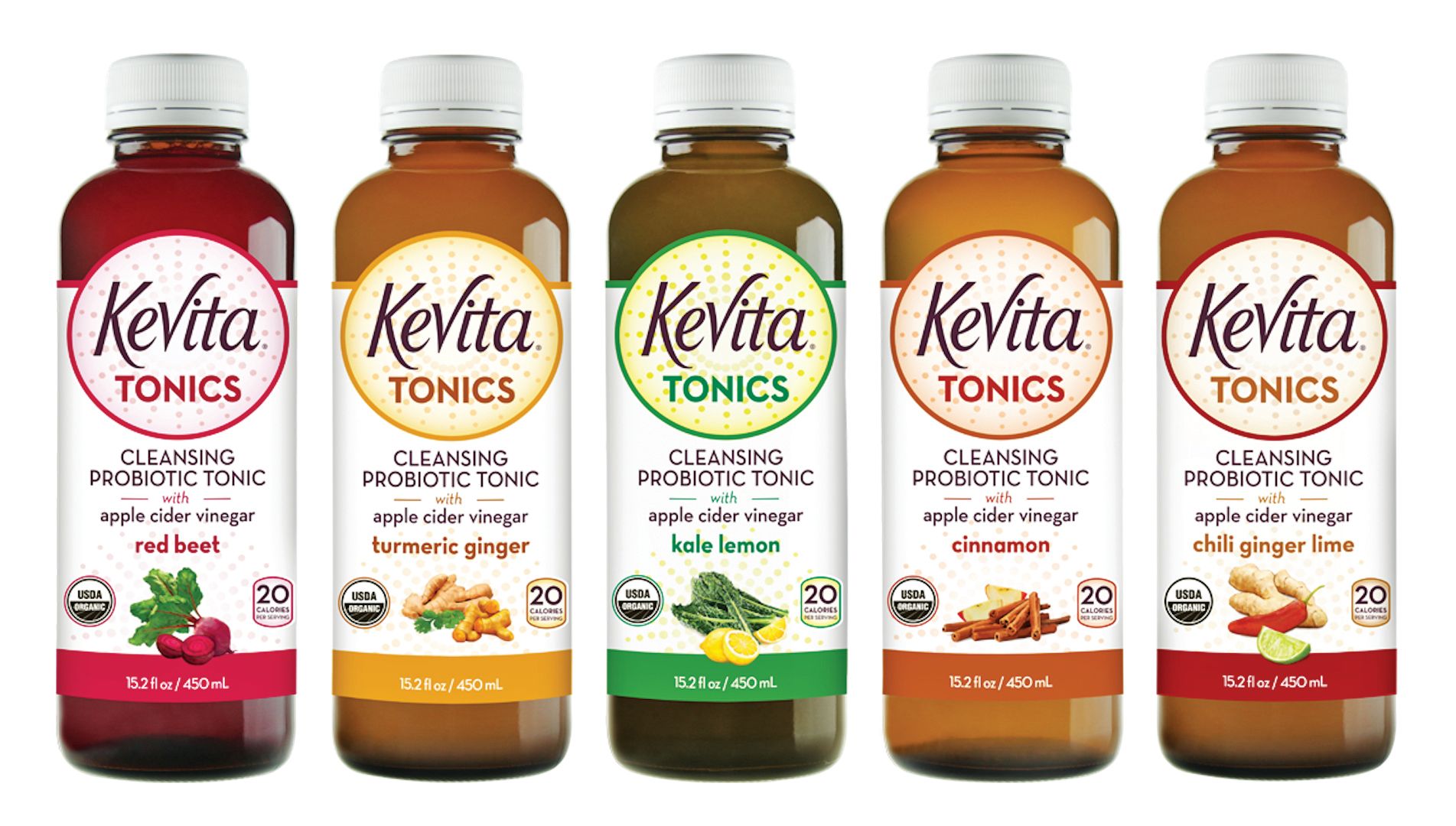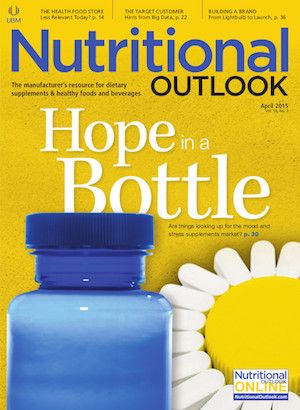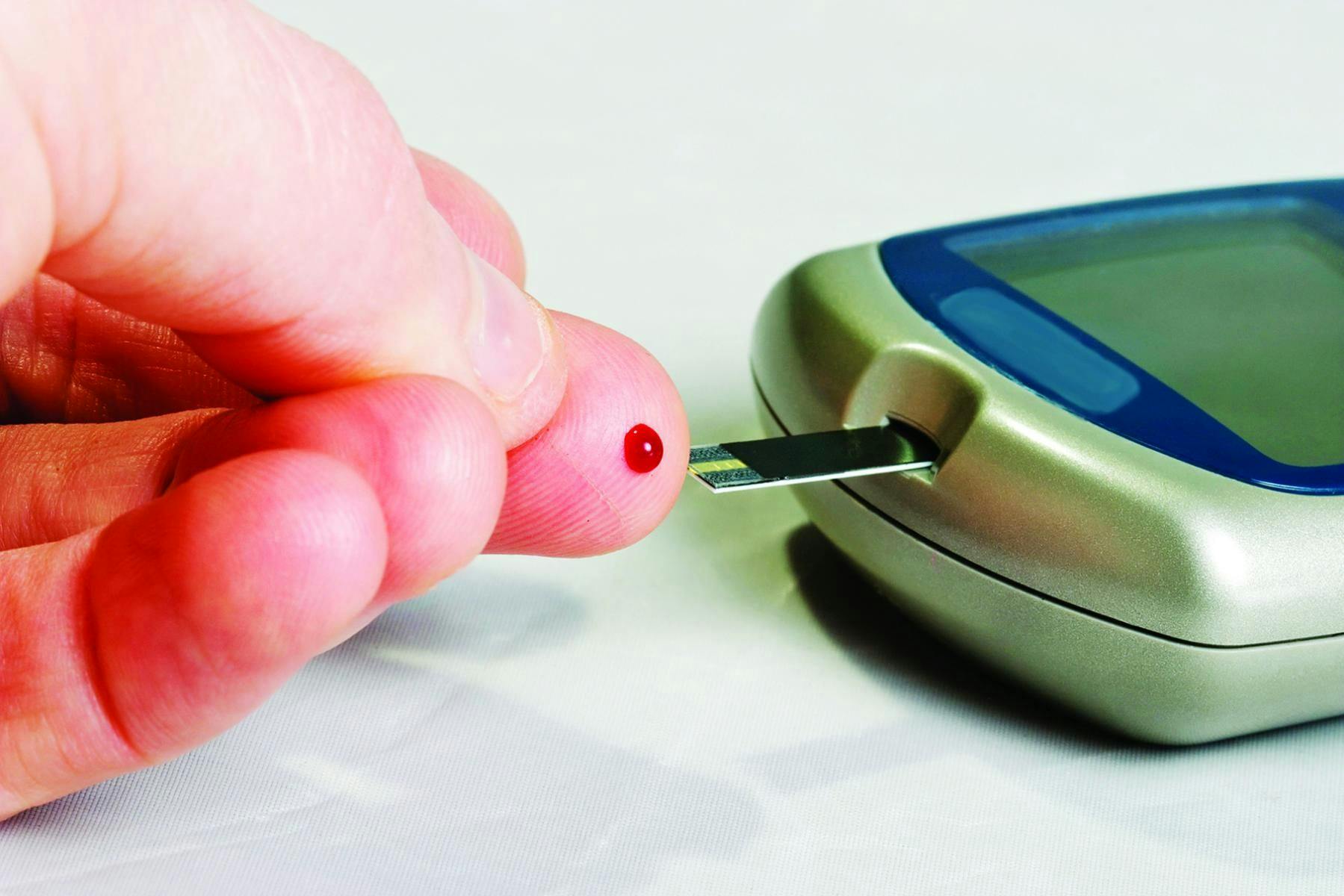Probiotics Opening New Doors
Probiotics turn to new marketing platforms.

Probiotic dairy products were among the earliest innovators of functional foods in Europe. As the market developed, probiotic products expanded to other western markets and grew increasingly sophisticated with specialized and often branded cultures and blends. But the European market position for probiotics is considerably complicated these days by the ongoing refusal of the European Food Safety Authority (EFSA) to approve probiotic health claims, despite extensive scientific dossiers presented by a number of major multinationals. Probiotic health claims issues also persist in the United States.
Still, about 1% of global food and drink launches recorded by Innova Market Insights still used probiotic claims in 2014; in the United States, nearly 6% of 2014 launches featured a probiotic claim. With unresolved struggles over health claims, there is more evidence that marketers continue moving toward general health and fitness positioning for probiotic products and away from specific health claims. Here’s some of what we’re seeing.
Yogurt
Probiotic yogurts are now repositioning themselves on taste and general health.
Probiotic yogurts went mainstream in the United States in early 2006 with the national launch of Dannon’s Activia spoonable yogurt, which the company claimed clinically proven to help regulate the digestive system. (Dannon’s exclusive Bifidus regularis strain had already been available in Europe for about 10 years, having started out in France in 1987 under the Danone Bio name.) The Activia brand achieved almost instant success in the United States, with sales reaching over US $150 million in the first year, officially taking probiotic yogurt out of the specialist dietary supplements market and into the mainstream. Numerous other brands followed Activia into the probiotic yogurt market over a period of years.
Since then, interest has turned to other types of yogurt products-most notably Greek yogurt. Most Greek yogurt is also probiotic in nature, but many brands don’t particularly emphasize the fact.
Brands like Activia are also trying to take note of where new interest lies, maintaining focus on good taste and “feeling good inside.” Activia launched its own Greek line, Activia Greek, in mid-2013, closely followed by Activia Greek Light. The Activia range now encompasses classic Activia Light, Activia Greek, Activia Greek Light, Activia Fiber, and Activia Drinks. New flavor options launch regularly to help keep interest high.
Drinks
The probiotic dose-delivery drinks market has had more difficulty maintaining consumer interest, and sales have suffered in many countries. Dose-delivery drinks did not even appear on the European market until the 1990s, despite high penetration levels in parts of Asia. They have yet to make any significant impression on the potentially huge U.S. market-but not for lack of trying.
Dannon has tried to promote its DanActive single-serve probiotic drink in the United States for some years (sold as Actimel outside North America). Despite the ongoing lack of mainstream interest in DanActive, the Japanese brand Yakult, which pioneered the European probiotic drinks market, continues to hone its U.S. position. It began U.S. production in California in the spring of 2014. The company also extended its U.S. product range with the introduction of a Yakult Light variety in 2012; still, in the United States there is no sign yet of the company’s Yakult Plus line (featuring added fiber and 70% less sugar) that launched in a number of European countries in 2013 and 2014.
Other companies also continue exploring new product activity in probiotic drinks. Kefir, for instance, benefits from its probiotic content and has become more mainstream in recent years.
Lifeway Foods is a major driver of the U.S. kefir market and now markets an extensive range of products, all featuring a blend of 12 live and active cultures. In 2014, the company’s new product activity focused on extending appeal through additional launches. The company first added three savory vegetable-based smoothies under the Veggie Kefir name (Beet, Cucumber, and Tomato). Each 8-oz bottle contains one serving of vegetables as well as the brand’s standard 12 probiotic cultures. Following this, Lifeway launched the four-product Perfect 12 range in dessert-style flavors sweetened with stevia and offering 12 g of carbohydrates as well as the 12 probiotic cultures.
Where Are the Opportunities Now?
There is clearly still interest in probiotic products, as reflected by ongoing levels of newproduct activity. Marketers are still seeking opportunities to showcase probiotic ingredients in new, appealing ways that may not always have to do with the heavy lifting involved in today’s restrictive regulatory climate.
Bill Moses, CEO and founder of KeVita, a brand that pioneered sparkling probiotic beverages, describes how forward-thinking has made KeVita successful, with products selling in U.S. markets such as Whole Foods and mainstream retailers nationwide. Here’s how: “First, KeVita established the ‘sparkling probiotic drinks’ segment within the functional beverages category,” Moses says. “That innovation play[ed] a large role in growing the probiotics and the functional beverages categories overall. Second, because KeVita is positioned as much as a great beverage experience as it is a probiotic, we do not have to push regulated claims that may come under scrutiny.”

Prinova acquires Aplinova to further increase its footprint in Latin America
April 7th 2025Prinova has recently announced the acquisition of Brazilian ingredients distributor Aplinova, which is a provider of specialty ingredients for a range of market segments that include food, beverage, supplements, and personal care.




















